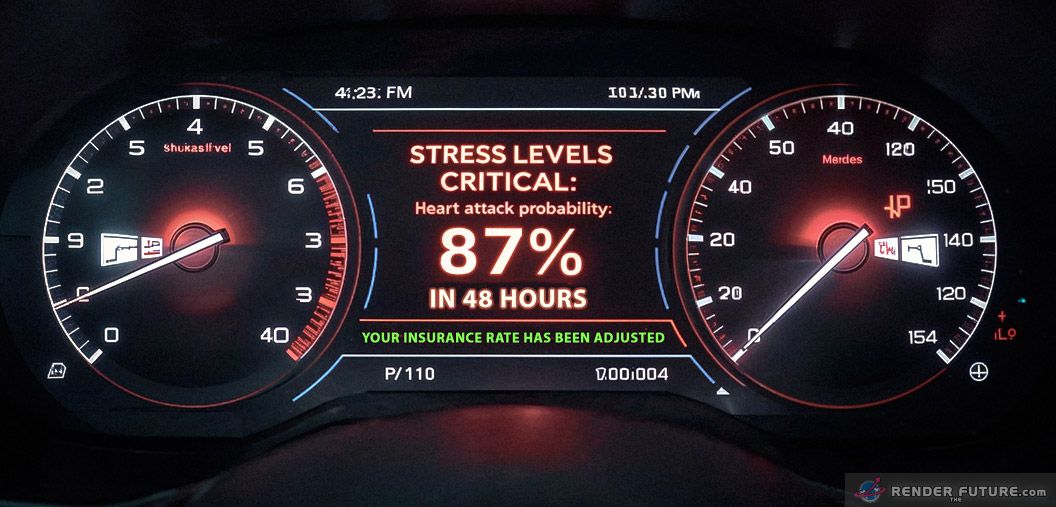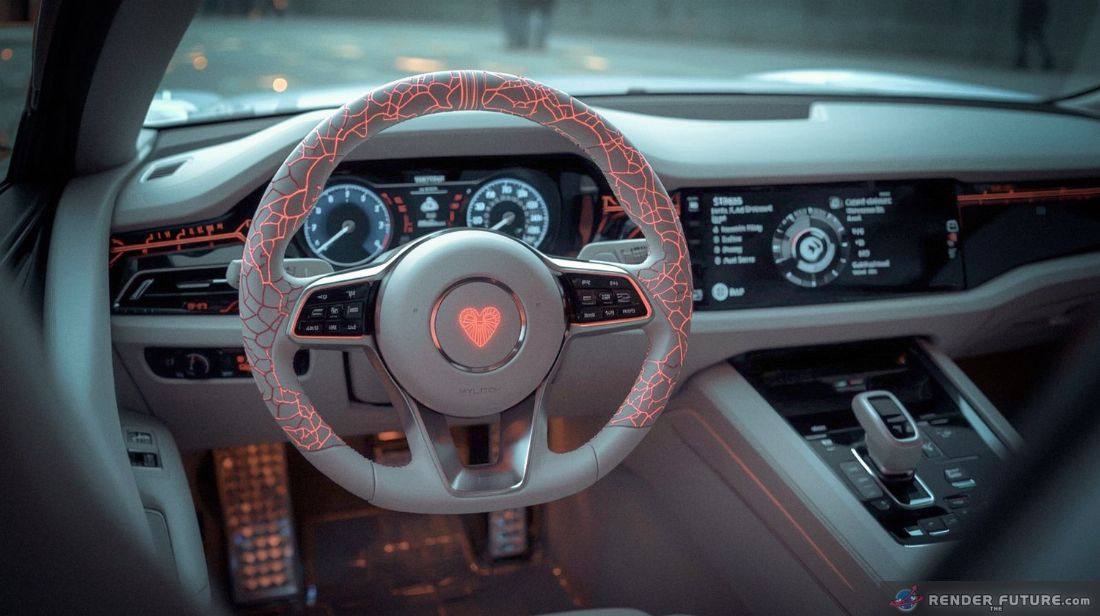THE END OF HEALTH PRIVACY
Your car will know you’re sick before YOU do
Your car is no longer just a ride — it’s a corporate spy, a medical snitch, a silent judge of your body. Steering wheels that steal your pulse. Voice sensors that dissect your stress. Breath analyzers that smell your sickness before you do.
Ford’s latest patents? Micro-cameras tracking your pupils like a interrogator. Your car could predict your heart attack 72 hours in advance.
But here’s the real question: When it does, who gets the alert first — you, your insurance company, or the highest bidder?
This isn’t innovation — it’s surveillance. And you’re the product.
What will THEY do with this power?
What will YOU do to stop them?
 Your Car Is Becoming Your Confessional — And Big Tech Is Listening
Your Car Is Becoming Your Confessional — And Big Tech Is Listening
You’re driving to work, gripping the wheel a little too tightly after that argument with your partner. Your car’s AI detects the tremor in your voice, the spike in your heart rate, even the subtle dilation of your pupils—then gently suggests a breathing exercise.
By 2030, this won’t be sci-fi; it’ll be standard. Ford’s patent filings read like a dystopian therapist’s toolkit: breath analyzers for blood sugar, micro-cameras for fatigue, steering wheels that double as EKGs. Your vehicle won’t just get you from point A to point B — it’ll know you’re on the verge of burnout before your spouse does.
 But here’s the rub: That data could save your life. Imagine your car alerting you to an irregular heartbeat 72 hours before a potential cardiac event, or flagging early diabetes through subtle changes in your breath.
But here’s the rub: That data could save your life. Imagine your car alerting you to an irregular heartbeat 72 hours before a potential cardiac event, or flagging early diabetes through subtle changes in your breath.
The upside is staggering — but the trade-off is a privacy surrender so vast, it makes today’s smartphone tracking look quaint. Who gets access to these intimate insights? Your insurer? Your employer? Law enforcement? Once your body becomes a data stream, the line between “guardian angel” and “surveillance state” evaporates.
The Irony?
We’ll volunteer for this panopticon. The same way we traded privacy for convenience with social media and smart speakers, we’ll hand over our biometrics for safety and health perks. And why wouldn’t we? When the choice is between “my car might save me from a stroke” and “my car knows too much,” survival instinct wins every time. But this isn’t just about individual consent — it’s about constructing a world where not being monitored becomes a luxury.
So buckle up. The road ahead is paved with miracles and minefields. Your car might soon be the most honest relationship you have—knowing your secrets, predicting your stumbles, and quietly deciding who else gets to ride shotgun with your data. The question isn’t whether this future is coming. It’s whether we’ll let it drive us—or if we’ll dare to grab the wheel.











